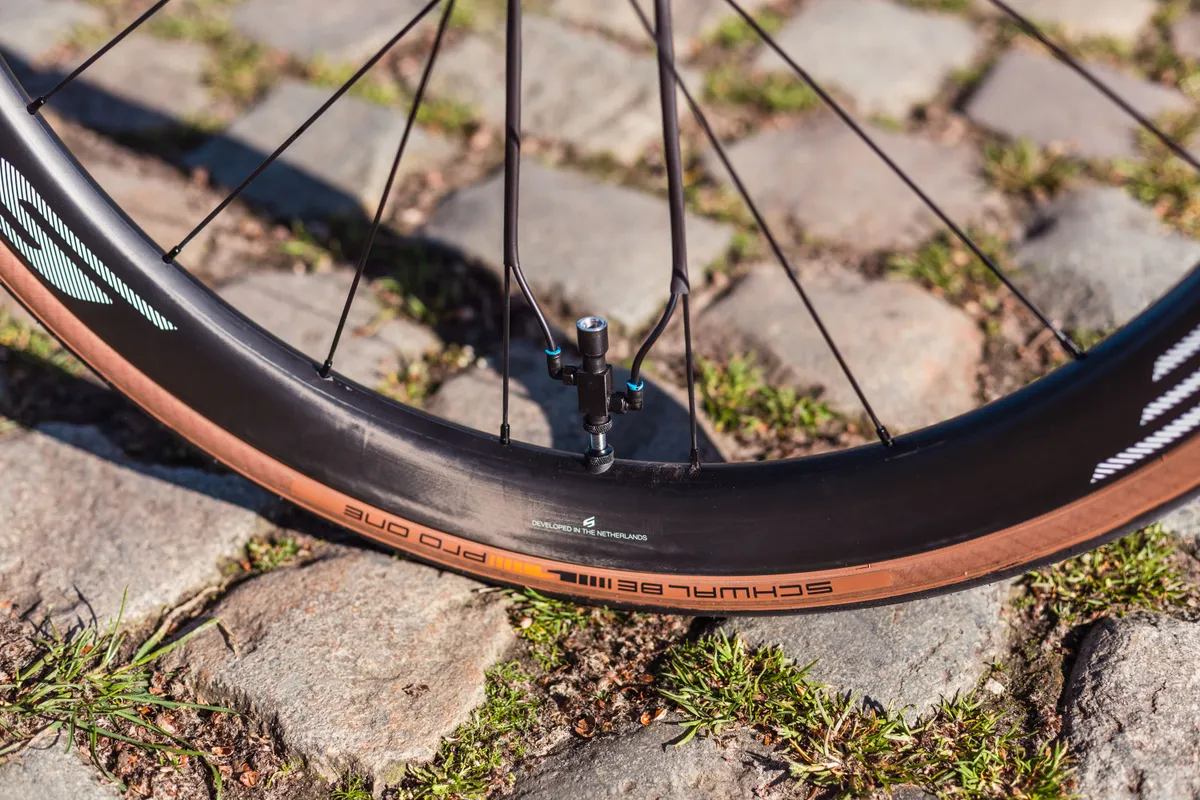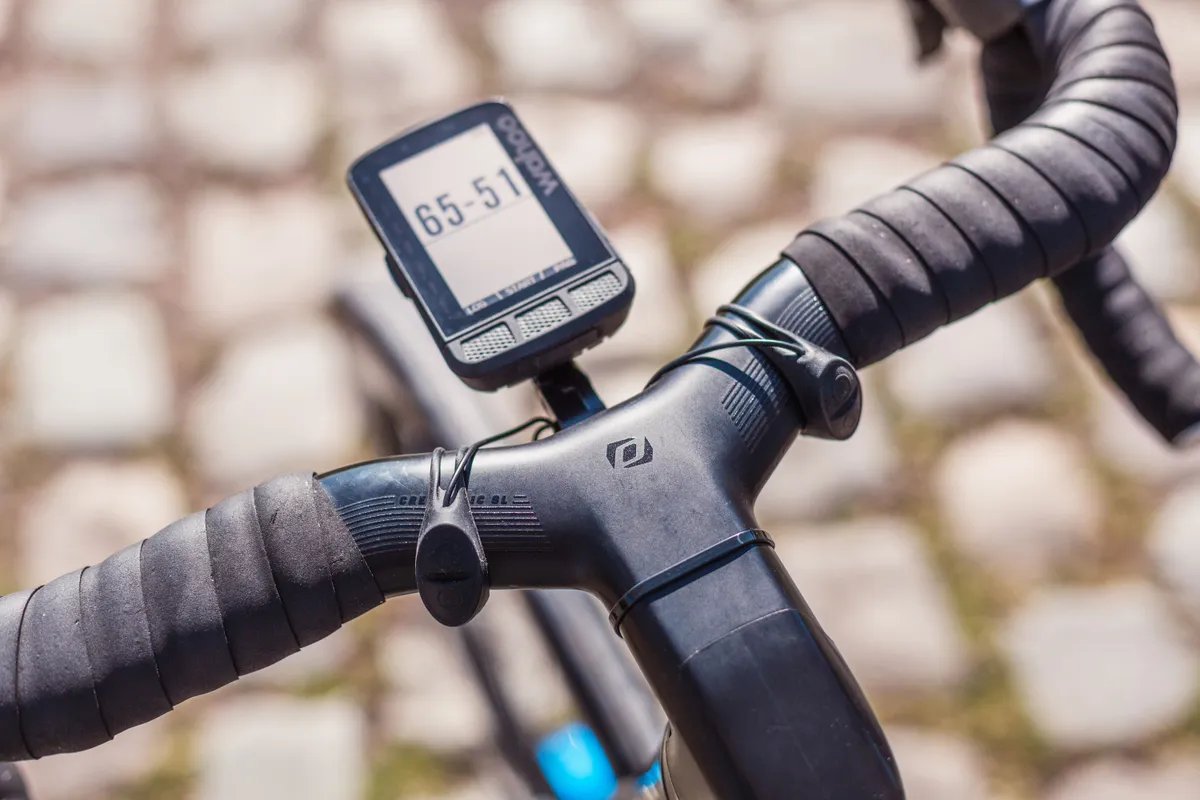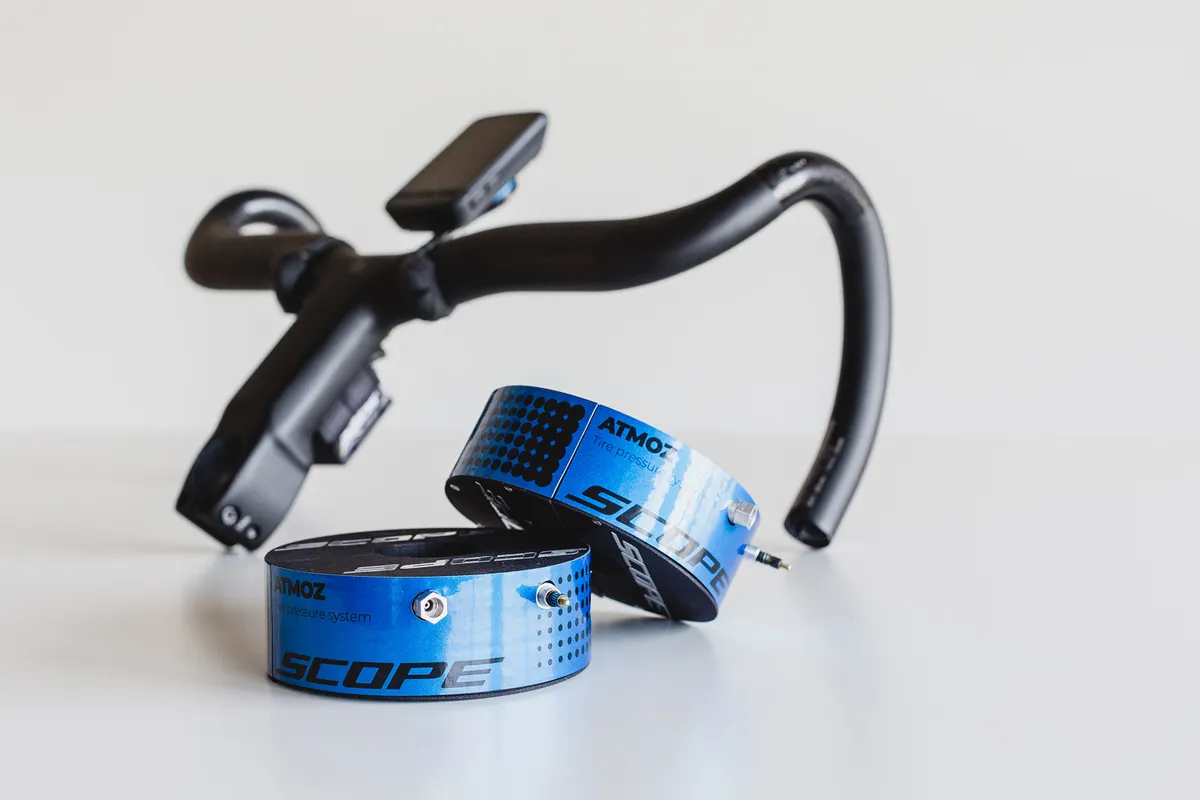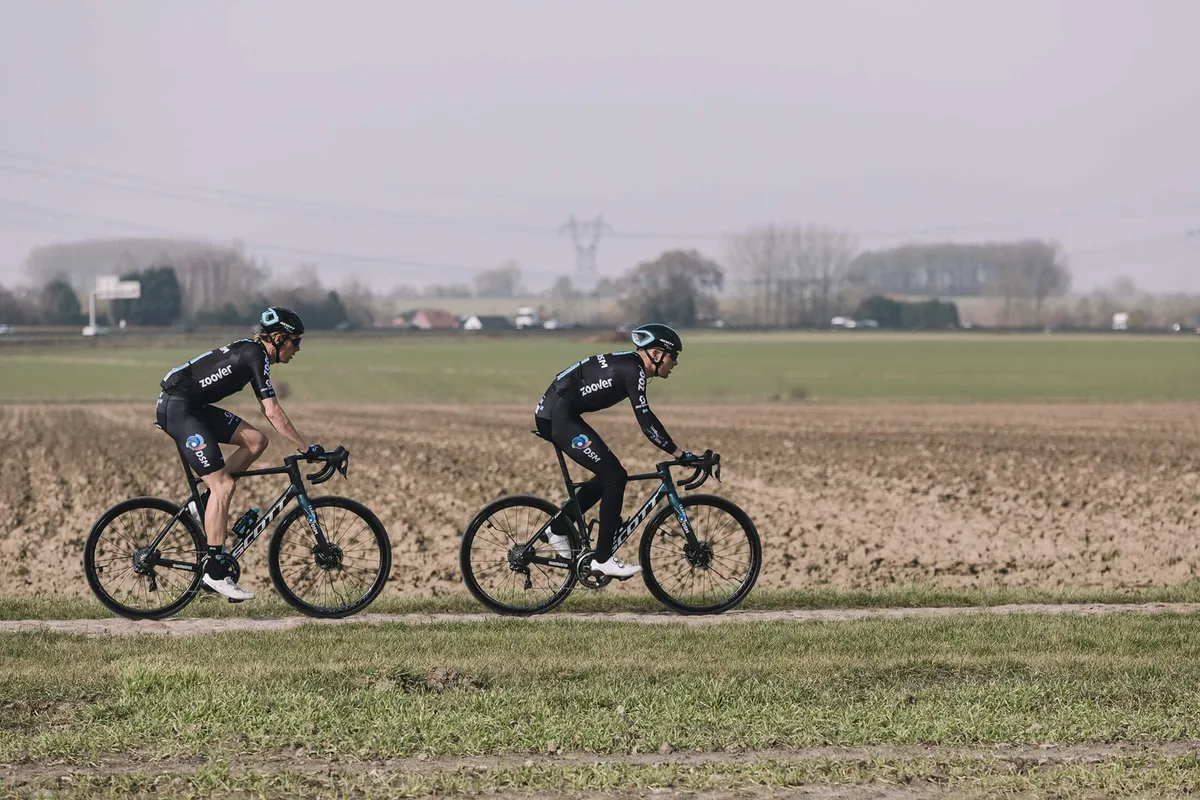Scope says Team DSM will race this year’s Paris-Roubaix using its Atmoz tyre pressure control system.
According to a press release from the Dutch brand, the “Scope Atmoz will be present in the peloton” this year at cycling’s toughest cobbled classic.
This wireless system (which can be installed on “any 29in or 700c wheel”) enables tyre pressure to be adjusted manually while riding, using two remote control buttons mounted to the handlebars.
The Atmoz is claimed to be capable of inflating or deflating a tyre by 7.3psi /0.5 bar per second, meaning significant shifts in tyre pressure could be made within seconds.
Scope claims such adjustments can offer gains of “up to 30 wattage [sic] of reduced rolling resistance, combined with improved comfort and safety in rough and wet conditions”, if performed at the correct moments.

Didn’t Scope say this last year?
Those with good memories may remember a similar story about the €3,998 system last year, with Team DSM ultimately electing not to use the system come race day.
Dutch website Wielerflits reports Team DSM will indeed use the system at this year’s race, however.
It also says Team Jumbo-Visma will use the HubTech Kinetic Air Pressure System (KAPS – a similar system from a competing brand) during the race too.

Why would you change tyre pressure mid-race?
As we commented last year, such devices could potentially offer significant performance gains if used strategically.
Though renowned for its cobbled sectors, the majority of Paris-Roubaix is spent riding on ‘normal’ roads.
An optimum tyre pressure (which provides the best balance of comfort, grip and rolling resistance) for tarmac or concrete roads is too high to be optimum on the harsh cobbled sectors, though.
As a result, riders and teams have historically compromised between speed on tarmac and comfort, speed and grip on the cobbles.

Being able to manually adjust to the optimum tyre pressure for each surface would theoretically eliminate any such trade-offs.
Of course, these systems do add weight and bulk to each wheel, but given the predominantly flat parcours of Paris–Roubaix, the benefits ought to outweigh the drawbacks if Scope’s claims are to be believed.
For example, Scope claims its Atmoz system weighs just 300g. Although it’s unclear if that covers one or both wheels on a bike, even a 600g weight gain would still have minimal performance impact during a race such as Paris-Roubaix.

Are these systems UCI legal?
Yes, they are – on 11 April 2022, the Union Cycliste Internationale (UCI) released a statement saying “built-in management systems for tyre pressure are authorised in professional road cycling”.
According to the UCI, the key factor is that such systems apparently don’t “contain any moving parts or compressors”.
Although such systems presumably must have some moving parts in order to store and transfer air (such as valves that open and close, for example), we can infer the UCI is essentially stipulating these systems must not include motors, or anything that could be used to drive the rotation of the wheels like a hub-based electric bike motor.

Scope, for example, specifically says the Atmoz is operated mechanically, and that “no motors or compressors are involved in the system”.
HubTech, meanwhile, says its KAPS system functions using a lightweight pump “driven by the rotation of the wheel”, and therefore doesn’t fall foul of the UCI’s technical regulations either.
Indeed, according to Twitter, Team Jumbo-Visma rider Edoardo Affini has already set a precedent by using the HubTech KAPS system in this year’s edition of Dwars door Vlaanderen.
Of course, it remains to be seen if any of the big pre-race favourites, such as Team Jumbo-Visma’s Wout van Aert, uses one of these devices.
If he or another rider were to secure a victory or strong result using such a device, though, we can be sure it would arouse significant interest from other teams and competitors.


